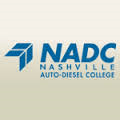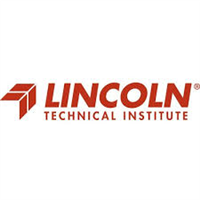What do they do?
Install, repair, and maintain mechanical regulating and controlling devices, such as electric meters, gas regulators, thermostats, safety and flow valves, and other mechanical governors.
Also known as:
Control Valve Mechanic, Control Valve Technician, Electric Meter Technician, Electrical Technician, Instrument and Controls Technician, Instrument and Electrical Technician (I and E Technician), Instrument Control and Electrical Technician (ICE Technician), Instrument Technician, Instrumentation Technician, Maintenance Technician, Measurement Technician, Mechanic, Meter Installer, Meter Maintenance Person, Meter Mechanic, Meter Technician, Residential Gas Heat Technician, Safety Relief Valve Technician, Service Technician, Valve Technician, Water Plant Maintenance Mechanic
-
1%
Change
Ranks #39 in job growth rate80Job Openings
Ranks #19 in net job growth
Colleges with the most graduates that become Control and Valve Installers and Repairers, Except Mechanical Door
Looking for colleges that offer a specific major? Use the College Match Tool to find your best-matched schools and discover your estimated Net Price!
- High school diploma equivalent (40%)
- Some college, no degree (32%)
- Associate's degree (13%)
- Bachelor's degree (8%)
- Less than high school diploma (6%)
- Master's degree (<1%)
- Doctorate or Professional Degree (<1%)
People in this career often know a lot about:
- Mechanical - Knowledge of machines and tools, including their designs, uses, repair, and maintenance.
- Engineering and Technology - Knowledge of the practical application of engineering science and technology. This includes applying principles, techniques, procedures, and equipment to the design and production of various goods and services.
- Public Safety and Security - Knowledge of relevant equipment, policies, procedures, and strategies to promote effective local, state, or national security operations for the protection of people, data, property, and institutions.
People in this career often have talent in:
- Oral Comprehension - The ability to listen to and understand information and ideas presented through spoken words and sentences.
- Problem Sensitivity - The ability to tell when something is wrong or is likely to go wrong. It does not involve solving the problem, only recognizing that there is a problem.
- Near Vision - The ability to see details at close range (within a few feet of the observer).
- Oral Expression - The ability to communicate information and ideas in speaking so others will understand.
- Deductive Reasoning - The ability to apply general rules to specific problems to produce answers that make sense.
- Information Ordering - The ability to arrange things or actions in a certain order or pattern according to a specific rule or set of rules (e.g., patterns of numbers, letters, words, pictures, mathematical operations).
- Arm-Hand Steadiness - The ability to keep your hand and arm steady while moving your arm or while holding your arm and hand in one position.
People in this career often do these activities:
- Maintain repair or maintenance records.
- Calibrate equipment to specifications.
- Inspect electrical or electronic systems for defects.
- Install electrical components, equipment, or systems.
- Install metering equipment.
- Test mechanical equipment to ensure proper functioning.
- Enter codes or other information into computers.
- Document operational activities.
- Control power supply connections.
- Communicate with coworkers to coordinate installations or repairs.
- Cut materials according to specifications or needs.
- Disassemble equipment for maintenance or repair.
- Repair worn, damaged, or defective mechanical parts.
- Adjust equipment to ensure optimal performance.
- Confer with coworkers to coordinate work activities.
- Inspect mechanical equipment to locate damage, defects, or wear.
- Adjust the tension of nuts or bolts.
- Connect electrical components or equipment.
- Investigate illegal or suspicious activities.
- Repair electrical circuits or wiring.
- Repair electrical components.
- Lubricate equipment to allow proper functioning.
- Replace worn, damaged, or defective mechanical parts.
- Rebuild parts or components.
- Measure distances or dimensions.
- Clean equipment, parts, or tools to repair or maintain them in good working order.
- Remove parts or components from equipment.
- Reassemble equipment after repair.
- Solder parts or connections between parts.
- Connect hoses to equipment or piping.
- Advise others on issues related to repairs, installation, or equipment design.
- Repair non-engine automotive or vehicle components.
- Collect payments for goods or services.
- Repair pipes to stop leaking.
- Train customers in the use of products.
This page includes data from:

 Occupation statistics: USDOL U.S. Bureau of Labor Statistics Occupational Employment Statistics
Occupation statistics: USDOL U.S. Bureau of Labor Statistics Occupational Employment Statistics








